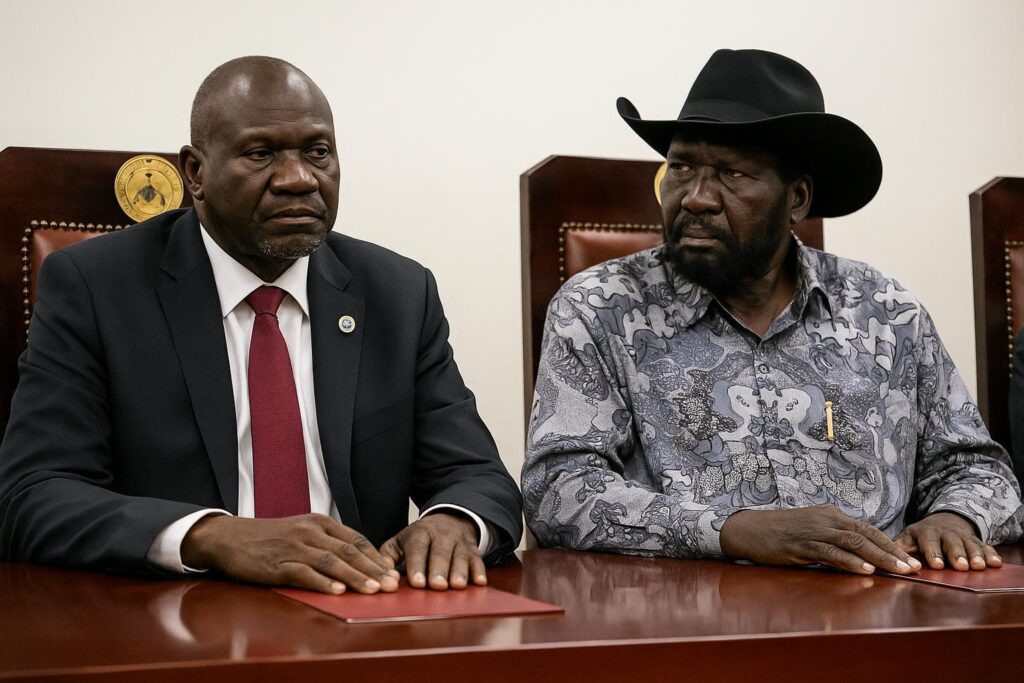Renewed Violence in Upper Nile State
Fourteen people lost their lives on Monday in South Sudan’s Upper Nile State, when government troops exchanged fire with fighters commonly called the White Army, the army confirmed Tuesday (The East African).
Military spokesperson Garang Ateny said the militia staged three coordinated assaults near Nasir, a town already scarred by earlier battles that triggered First Vice-President Riek Machar’s arrest in March. The army reported four fatalities among its ranks and claimed ten attackers were killed during the engagements.
Machar Detention Fuels Political Tension
Machar, who leads the SPLM-IO party, remains in custody over allegations that he backs the White Army. His aides deny any current links, insisting he is committed to the 2018 peace deal that obliged him to share power with President Salva Kiir after years of civil war.
Ethnic Undercurrents Shape Battlefield
Observers note that the White Army draws largely from Nuer youth, while the national army’s leadership is dominated by Dinka officers. Analysts warn that each fresh clash risks reviving communal grievances that once drove a conflict which killed hundreds of thousands between 2013 and 2018.
Peace Deal Faces New Strain
The 2018 accord, brokered by regional mediators, created an uneasy unity government. Kiir’s office says Juba still values the agreement, yet officials privately concede that sustained militia attacks could prompt hard-line voices to argue for tougher security measures rather than dialogue.
Regional and Humanitarian Stakes
Upper Nile hosts thousands of displaced families and sits near Sudanese and Ethiopian frontiers, making any escalation a cross-border concern. Aid agencies report that renewed violence disrupts planting season, threatens river transport on the Sobat, and complicates efforts to move relief supplies before heavy rains arrive.
International Calls for Restraint
The Intergovernmental Authority on Development, African Union, and United Nations Mission in South Sudan have urged all sides to respect the ceasefire and release political detainees. A Nairobi-based diplomat said, “A return to large-scale conflict would reverse fragile humanitarian gains and destabilise the wider Horn.”
Prospects for Dialogue
Government envoys maintain that back-channel talks with SPLM-IO figures continue despite public acrimony. Analysts suggest that a credible investigation into this week’s clash, coupled with local peace committees in Nasir, could contain violence and keep the 2018 roadmap alive.


